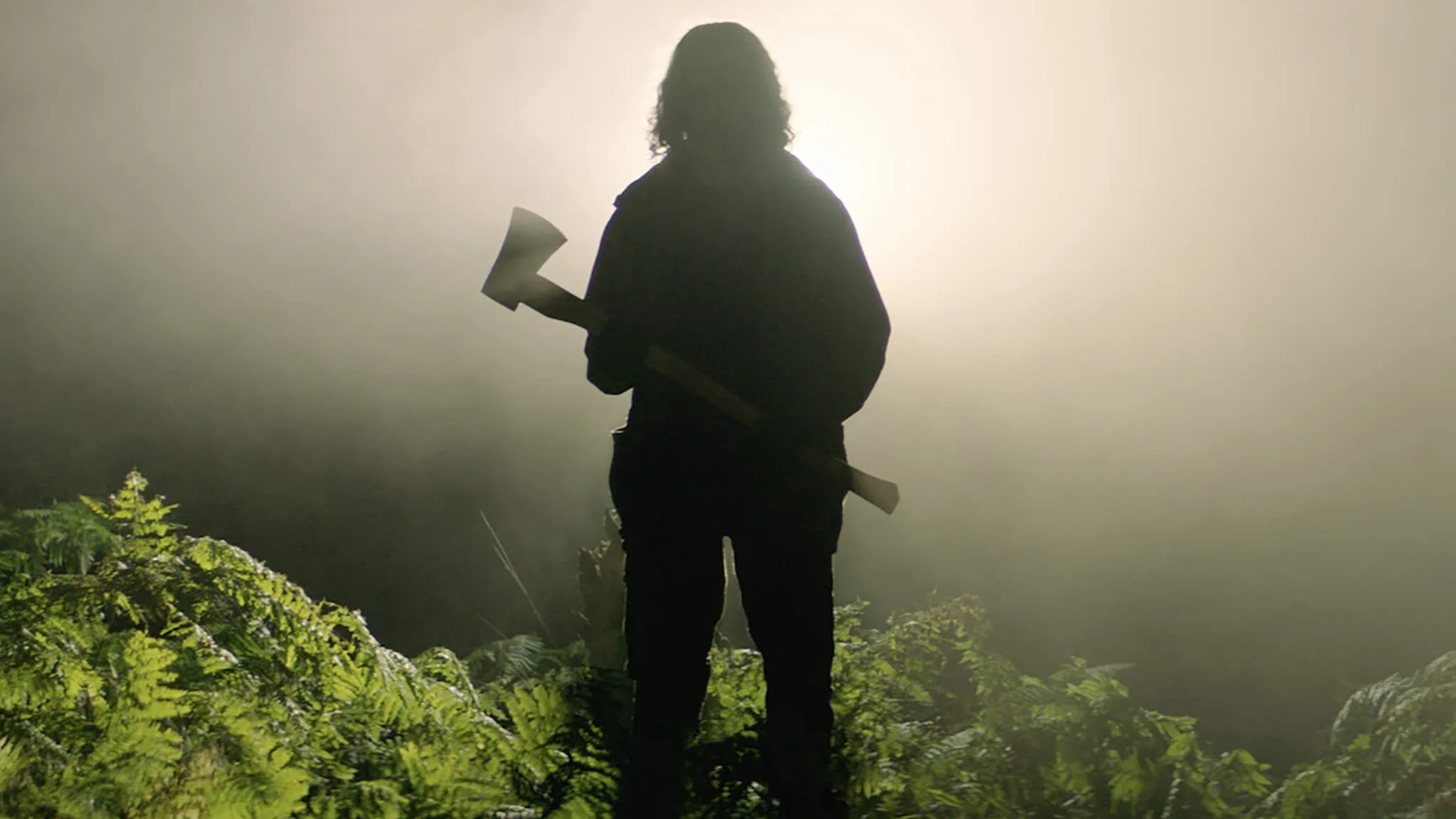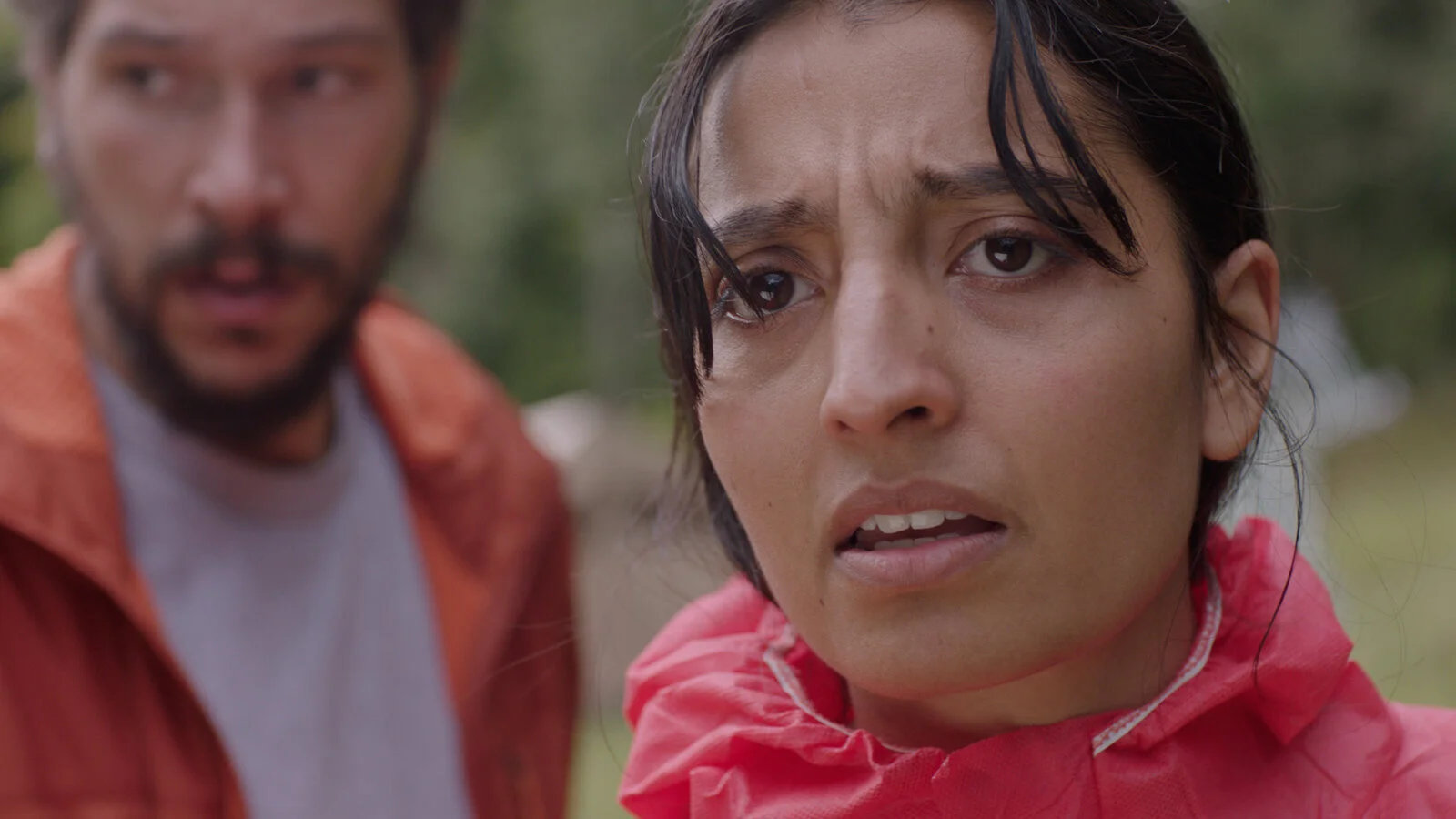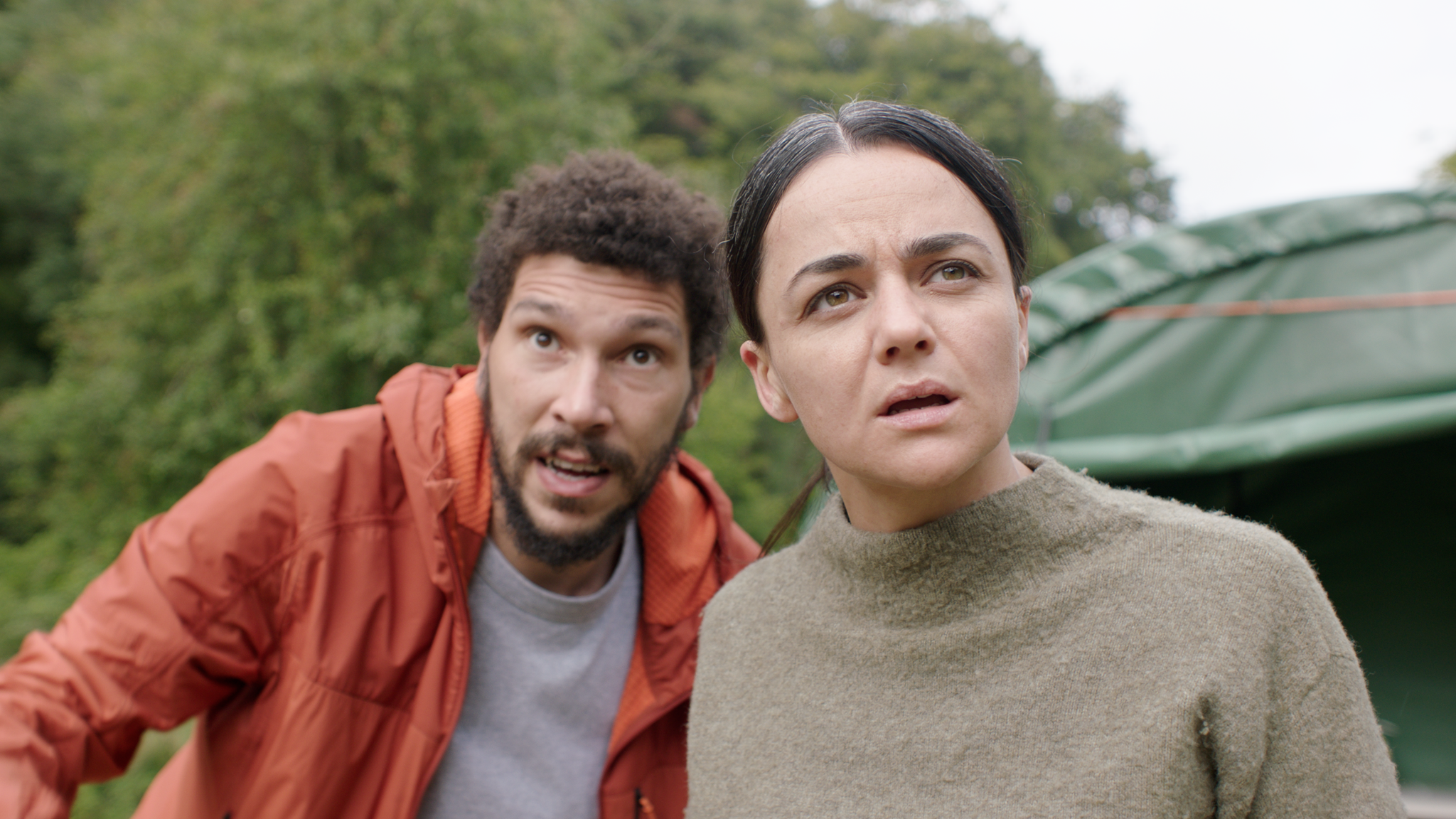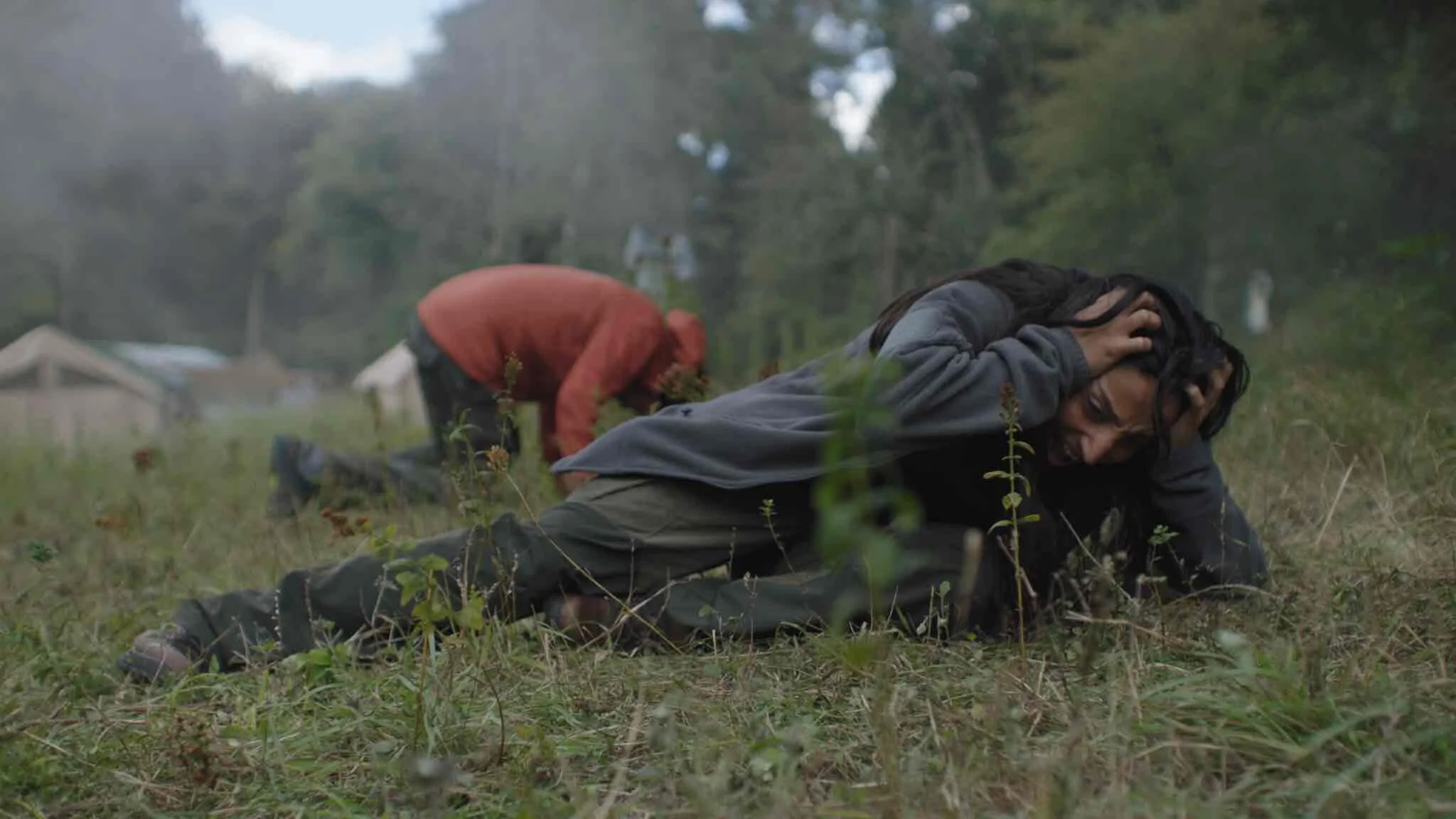[Review] In The Earth 2021 review
As rich as the horror genre is, it always seems there are more and more sub-genres sprouting their seeds and blossoming into existence just as we’ve discovered the last one. Much like evolution and nature, the genre of horror continues to grow and adapt as the fears of the audience become accustomed to the frights they have already been presented with numerous times. Much like how a disease becomes immune to the cure discovered for it, our viewing habits develop similarly, with the constant need for horror to find new ways to break down our psychological barriers and force its terror into our minds and bodies once more.
Eco-horror may not be a new and unidentified species of the genre, but it presents itself like an underdeveloped seed, with its roots merely centimetres long, just waiting to reach far and wide through the deep grounded film genre that we love so desperately. Director Ben Wheatley has been ahead of the curve for some time, tapping into these niche areas of horror to deliver a spectacle of fear that dwells with the audience for far longer than the run-time. In 2011 Wheatley delivered Kill List that made an outstanding entry into the occult sub-sector and has over time well-established itself as one of the most frightening and disturbing visions of dedication to religion. In 2013, he played alchemist by combining hallucinogenic horror with an olden-day war tale, which resulted in the mesmerising A Field In England that showed the psychedelic effects of a bad trip in the worst place imaginable. In 2015, the maestro once again thought higher than his peers with High-Rise, which examined the breakdown of society within the confines of an apartment complex, and how horror can be ruled by class systems, society and claustrophobia. All of these provide reasons for the excitement regarding his latest venture back into horror with In The Earth.
With the world trying to battle against a deadly disease that has been spreading like wildfire from person to person, there is a remote, desolate yet exceptionally beautiful forest in the UK that could provide some relief or answers to the war the world is facing. Martin Lowery (Joel Fry) has put upon himself an important task of locating his ex-colleague and helping to reinvigorate the work she has been doing in the woods. Martin is accompanied by local guide, Alma (Ellora Torchia), into the depths of the woodland - a place that although might look humble, is host to natural foliage that is unlike any other found within the world, creating an ecosystem beneath the ground that is connected in a labyrinth of roots. As the pair venture deeper and deeper into the forest to find Olivia (Hayley Squires), they find themselves exposed and vulnerable after a violent attack during the night. Bare-footed, frightened and simply confused, they are greeted by the wondrous Zach (Reece Shearsmith), a self-sustaining man who has been living contently in the woods for some time, who offers to help Martin and Alma so they can once again resume their journey without any harm or trouble. But with a calm demeanour, and a nonsensical obsession with the forest being alive, it is not long until Zach becomes far more of a threat than anything the remote location could offer.
As humans, we can quickly agree that mother nature is perhaps one of the most ferocious forces that anyone could ever come up against; mere humans cannot battle the elements, nor have any control of them, therefore leaving us defenseless to whatever she may have in store. In The Earth takes this concept and turns it into a mystical warfare; nature at best can destroy a life without even meaning to, but when you throw other confused and paranoid humans into the mix, it becomes a deadly connection that knows no logic nor reason, and only results in decay. From the outset, it is clear that Wheatley was inspired by the pandemic that has unfolded before our eyes; not only are there elements in here which had a droplet of realism (face masks for instance), but the idea that humans are always running from the next disease or natural disaster, something that in real life becomes the unstoppable Michael Myers in which we should all genuinely be afraid of. Rather than creating another virus movie, Wheatley took eco-horror and turned it into occultism, obsession, faith and humanity - looking at how when you throw isolated, unstable humans into the mix, the terror at hand is only exacerbated and turned into something it is not.
Wheatley exhibits his staple fascination with hallucinogenic drugs, but ones that are formulated and fed from mother nature’s breast herself - not those of manmade descent. He infuses these trips into the minds of fragile humans, and watches the effects take hold as they become victims to the stimulatory elements that have now overruled any motor control they previously owned. Much like in A Field In England, the audience are privy to the warping of the minds of both Martin and Alma, and how without consent to becoming enlightened, it can only end in an experience that invokes sheer horror and confusion. The visuals of these bad trips are conjured on to the screen, allowing the audience to trip vicariously through the characters and realise that natural narcotics are only part of an enlightening experience when they have been taken with knowledge and in a landscape that allows for escapism and not confinement.
The performances throughout In The Earth are completely captivating; Joel Fry shows how Martin is awkward, shy and harbours secrets to protect his own pride and sense of worth, but he is logical, calm and within the most horrific of circumstances, still manages to look after those around him. Ellora Torchia shows how Alma is an accompaniment to the personality of Martin, she might be a little more feisty than he is, but she understands how to keep her cool, and together they are logical and rational characters - not the typical frustrating characters that we are so used to seeing in horror films. Hayley Squires delivers a truly perturbing performance as Olivia, at times coming across as so authentically sane but always leaving a slither of doubt within our minds that something is just not quite right - gradually becoming more and more unsettling with each scene. Yet it is Reece Shearsmith as Zach that becomes the centrepiece to this story, encompassing all the elements of devotee and psychopath in one. He is something more forceful than the elemental horror around them, but he is at one with this, which gives him a more resistant power - one that utilises the surroundings and ecological powers to manifest his obsession into a horrifying reality.
In The Earth is not somewhere you go looking for answers, or expect to come away with any clarity. It feels like there should be something to unearth throughout the film, yet as we transcend into madness there is a disconnect between the elements within the film - an aspect that may feel suitable for some viewers, but could alienate others from connecting with the story. The lunacy that becomes more intensified as the film sprouts further towards the sun holds the piece together, and branches into the viewer’s mind with such subtlety that even at the most unknowing of times, this film will come back to haunt you. After leaving the cinema, there was something within me that felt uncertain about the horror of In The Earth, but after weeks of contemplation and consideration to take a trip into the woods, it has become clear that Wheatley’s eco-horror film is nuanced in such a natural way that it is easy to leave it buried underneath the dirt that covers the surface.







![[Editorial] 5 Slasher Short Horror Films](https://images.squarespace-cdn.com/content/v1/5fe76a518d20536a3fbd7246/1696358009946-N8MEV989O1PAHUYYMAWK/Screenshot+2023-10-03+at+19.33.19.png)
![[Ghouls Podcast] Maniac (2012) with Zoë Rose Smith and Iona Smith](https://images.squarespace-cdn.com/content/v1/5fe76a518d20536a3fbd7246/1696356006789-NYTG9N3IXCW9ZTIJPLX2/maniac.jpg)
![[Editorial] If Looks Could Kill: Tom Savini’s Practical Effects in Maniac (1980)](https://images.squarespace-cdn.com/content/v1/5fe76a518d20536a3fbd7246/1694952175495-WTKWRE3TYDARDJCJBO9V/Screenshot+2023-09-17+at+12.57.55.png)
![[Editorial] Deeper Cuts: 13 Non-Typical Slashers](https://images.squarespace-cdn.com/content/v1/5fe76a518d20536a3fbd7246/1694951568990-C37K3Z3TZ5SZFIF7GCGY/Curtains-1983-Lesleh-Donaldson.jpg)
![[Editorial] Editor’s Note: Making a slash back into September](https://images.squarespace-cdn.com/content/v1/5fe76a518d20536a3fbd7246/1694354202849-UZE538XIF4KW0KHCNTWS/MV5BMTk0NTk2Mzg1Ml5BMl5BanBnXkFtZTcwMDU2NTA4Nw%40%40._V1_.jpg)
![[Editorial] 8 Mind Horror Short films](https://images.squarespace-cdn.com/content/v1/5fe76a518d20536a3fbd7246/1693504844681-VPU4QKVYC159AA81EPOW/Screenshot+2023-08-31+at+19.00.36.png)
![[Editorial] Eat Shit and Die: Watching The Human Centipede (2009) in Post-Roe America ](https://images.squarespace-cdn.com/content/v1/5fe76a518d20536a3fbd7246/1691245606758-4W9NZWE9VZPRV697KH5U/human_centipede_first_sequence.original.jpg)
![[Editorial] Top 15 Female-Focused Mind Horror Films](https://images.squarespace-cdn.com/content/v1/5fe76a518d20536a3fbd7246/1691247166903-S47IBEG7M69QXXGDCJBO/Image+5.jpg)
![[Editorial] 8 Body Horror Short films](https://images.squarespace-cdn.com/content/v1/5fe76a518d20536a3fbd7246/1690838270920-HWA5RSA57QYXJ5Y8RT2X/Screenshot+2023-07-31+at+22.16.28.png)













I can sometimes go months without having a panic attack. Unfortunately, this means that when they do happen, they often feel like they come out of nowhere. They can come on so fast and hard it’s like being hit by a bus, my breath escapes my body, and I can’t get it back.